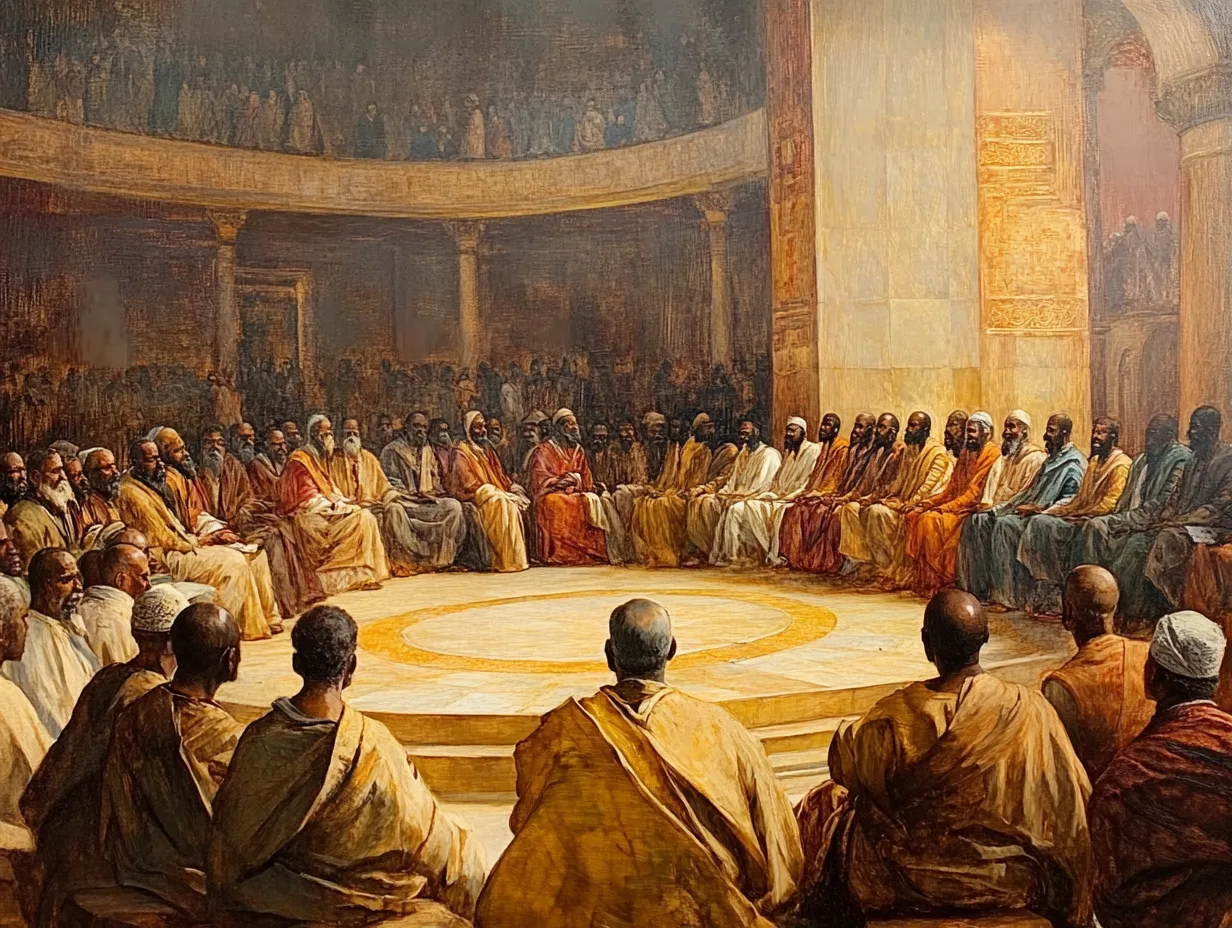I’ve been reviewing the early Church Fathers to compile an overview of the different views on eschatology, but while reading I came across quotes on the fall of angels, as well as the editorial note.
I’ve noticed this in other readings, and so thought I’d publish it here just for kicks and giggles.
“Hence also certain of the angels, refusing to submit themselves to the commandment of God, resisted His will; and one of them indeed fell like a flash of lightning upon the earth, while others, harassed by the dragon, sought their felicity in intercourse with the daughters of men, and thus brought on themselves the merited award of the punishment of eternal fire. And that angel who was cast down to earth, finding no further admittance into any of the regions of heaven, now flaunts about among men, deceiving them, and luring them to become transgressors like himself, and even to this day he is an adversary to the commandments of God. The example of his fall and ruin, however, will not be followed by all, inasmuch as to each is given liberty of will. For this reason also has he obtained the name of devil, because he has passed over from the heavenly places, and appeared on earth as the disparager of God’s commandment.”
-Archelaus, in ANF 06, p. 481
Then the editorial note says,
We have another instance here of a characteristic opinion of the Jewish rabbis adopted by a Christian father. This notion as to the intercourse of the angels with the daughters of men was a current interpretation among the Jews from the times of Philo and Josephus, and was followed in whole or in part by Tertullian, Justin, Irenæus, Clemens Alexandrinus, Athenagoras, Methodius, Cyprian, Lactantius, etc. Consult the note in Migne; [also p. 131, note 2, supra].
This view is no longer popular, being overtaken by the view that the term “sons of God” refers to the godly lineage of Seth rather than that of angelic beings. But, personally, it does give me pause to reject an interpretation held by so many of the early Church Fathers.


Leave a Reply